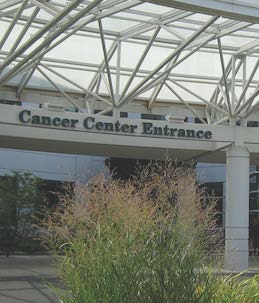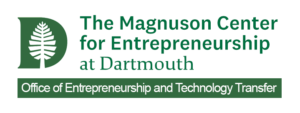Cancer Accelerator Providing Needed Bridge From Research To Market

The accelerator, announced earlier this fall, has selected 19 teams and begun work on bringing Dartmouth innovations to market.
The Dartmouth Innovations Accelerator for Cancer is up and running, offering 19 teams comprised of 35 people the support, entrepreneurial guidance, and infrastructure to bridge the gap between academic research and the biopharmaceutical marketplace.
The accelerator was announced this fall, after an initial fundraising effort by five Dartmouth alumni who raised $1.4 million for the program. With that, the accelerator was quickly able to attract applicants, and identify 19 teams that would benefit from the first session.
Although the 10-week formal educational component of the accelerator does not begin until January, the teams are already working with the leaders of the accelerator to refine pitch decks and prepare to sit before an external review panel of investors and entrepreneurs who will provide valuable feedback about their ideas and how they might translate into businesses.
“They’re already working, getting feedback, and meeting people now. It’s important to get that initial feedback and exposure to the review panel,” says Barry Schweitzer ’82, the Senior Business Development and Licensing Manager for Life Sciences & Biotech at the Technology Transfer Office, who is organizing the accelerator along with Lidia Schoonenberg, Program Manager for Startup Support at the Magnuson Center for Entrepreneurship.
This first phase of the accelerator will allow teams to fine-tune their projects in order to get the most out of the educational component of the program, Schweitzer added.
Cancer researchers who are affiliated with Dartmouth say that the program will fill a gap in bringing cancer research to market
“When I came to Dartmouth for my PhD, I saw firsthand the niche research environment where we can invent, create, and commercialize our ideas, but there is a disconnect between implementation and commercialization in academic research,” says Edmond J Feris, GR ’19, a research associate at Norris Cotton Cancer Center and the Department of Molecular and System Biology. “Dartmouth needs this program to fill that gap, and it needs someone like Barry that has the experience needed to help bridge that gap.”
Ethan LaRochelle, Thayer PhD ’20, will by working on QUEL Imaging, a platform that uses smartphones for treatment planning and monitoring of pre-cancerous skin lesions. He believes that with the accelerator, he’ll be able to bring his product to market in a more efficient way.
“We've made decent progress, but a program like this could help us demonstrate the full potential of our idea,” he says.
LaRochelle is excited not just for himself and his team, but all cancer researchers at Dartmouth. He believes that the program will have a long-term impact on investment in Dartmouth innovation.
“There are a number of people working on really impactful projects throughout the Dartmouth community, and there are many local resources to foster these ideas, but I think potential investors may overlook this region,” he said. “So I think it is important for an initiative like this to spotlight the people and ideas coming out of the Dartmouth community.”
For Rachel Brog, a PhD student in the Molecular and Cell Biology Program, the accelerator presented a clear path for bringing her work from the lab to the real world.
“The accelerator program means my discoveries won't be taken only as far as a paper publication. This program will help bridge the gap into taking our discoveries to the next level where they can make an impact on society,” she says.
It’s also helped her see the potential for a career in biotech entrepreneurship.
“I'm considering a future career in small biotech and entrepreneurship,” she says. “Having the support and learning available through the accelerator program, I hope I will gain the confidence and the skillsets necessary to be successful in my future career.”
The Dartmouth Innovations Accelerator for Cancer will continue into the winter and spring semesters. An effort to raise $15 million in philanthropy for the accelerator by 2022 is ongoing. To make a gift to the accelerator, contact Bethany Solomon.

